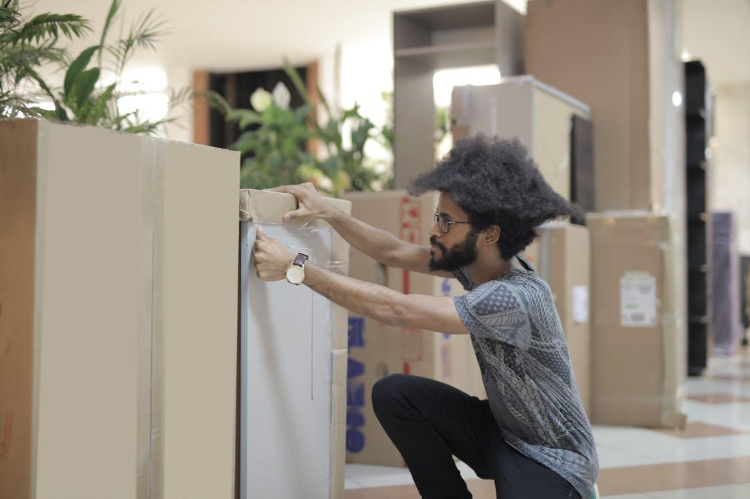Commercial Relocation Tips Professional Movers Want You to Know

Commercial relocations are more than just about recruiting commercial moving services. They involve lots of packing, labeling, getting all your affairs in order before leaving, etc. The word you’re looking for is ‘stressful’.
Theindustrial machinery movers are pretty good at their job, and they can help you plan, pack, and move. However, if you’re undertaking the planning bit on your own, make sure you have it right for a smooth and uneventful move from your location to North Texas or any other popular corporate relocation destination.
So, with those noble intentions in mind, here are the commercial relocation tips to keep in mind from one professional to another.
Never Schedule Moves Around Peak Times
Every industry has a peak season, meaning the time of year when sales are at their peak. The first order of relocation moving is not seeing how many items you need to move but when to move them.
When it’s your company’s peak season, scheduling a move is not something you want to indulge in. Not even by altering your hours. Closing shop for good takes time, and doing so when you’ve got the most customers coming in won’t just lose you sales opportunities but may also give your customers the wrong impression.
Plan your facility operations move around, not at peak season. This could be right when your sales go back to their usual pattern again or at an all-year low. You have the final say, so make sure it’s the right one.

Get All the Essential Packing Supplies
Commercial relocation isn’t a long process. Storage withstanding: it only takes hours to get your commercial equipment from point A to B. Therefore, you don’t have to invest in expensive packing supplies to ensure your boxes stay intact for long periods.
All you have to do is make sure they’re the right packing supplies. If you’re doing your own packing:
- Order the right amount of cardboard moving boxes and make sure they’re in different sizes to accommodate all your equipment.
- Packing tape
- Tape guns
- Scissors
- Sharpies
- Cleaning supplies
- Bubble wrap and other protective supplies to avoid damage to your fragile items.
Cut Your Clutter to Cut Your Losses
Decluttering is your friend, my friend. Not only because you’ll be paying less for the move but also because this is your new start, and you might be looking to upgrade certain items that won’t look as good at your location.
Get rid of any equipment that no one’s using or is no longer operating but only taking up extra space. Go full-throttle Marie Kondo by trading old gear for new equipment that serves more than one purpose. You can create a minimalist office where your employees can actually see out the window instead of having it blocked by one piece of equipment too many.
Think About Your Unpacking Routine
The packing and moving stages may go swimmingly, but your boxes are going somewhere. Unpacking and arranging items is as time-consuming as securing and packing items. However, there’s a great way to cut the time involved in the unpacking process.
First, you probably want to unpack your devices and hardware before anything else, so be sure to label them so that they would be the first boxes to arrive and be opened by your technical team.
Deploy the numeric label system by assigning a number to the items belonging to each department and labeling them as such. This would make it easier for movers to navigate your new space while unloading the boxes.
Alternatively, you could deploy the color-coding system and assign a specific color to different departments. Thus, the movers won’t have to look at each box before unloading it, saving themselves and you plenty of precious time.

Protect Your Equipment from Damage
Although commercial office movers are pretty good at their job, to ensure your business equipment is moved in the state it left your location, you need to take extra measures to protect your expensive and breakable equipment.
When packing hard drives, wires, monitors, laptops, routers, printers, and other tech equipment, use plenty of packing supplies. Request plenty of cushioning, such as bubble wrap, packing peanuts, and foam, and tightly seal each item with tape. There’s no need to use double layers of tape. Just make sure there aren’t any air bubbles on the first layer.
Don’t Forget the Furniture
Last but certainly not least, take care of any furniture you’ve got lying around. This includes couches, office chairs, desks, containers, shelving units, cubicles, cabinets, and other furnishings dotting your old location.
Disassemble your heavy furniture and see that it’s packed just right. Make sure it’s not stacked one on top of the other but placed adjacently in the mover’s vehicle.
If you’d rather someone more experienced oversee the planning phase of your commercial move, the ValleyRelocation team might just have the relocation service for you. Recruit their affordable moving and storage services in any of these locations and let them help you organize your commercial move. They provide local and specialized logistics for hotel moving, commercial kitchen equipment relocation, facilities support services, and more!


